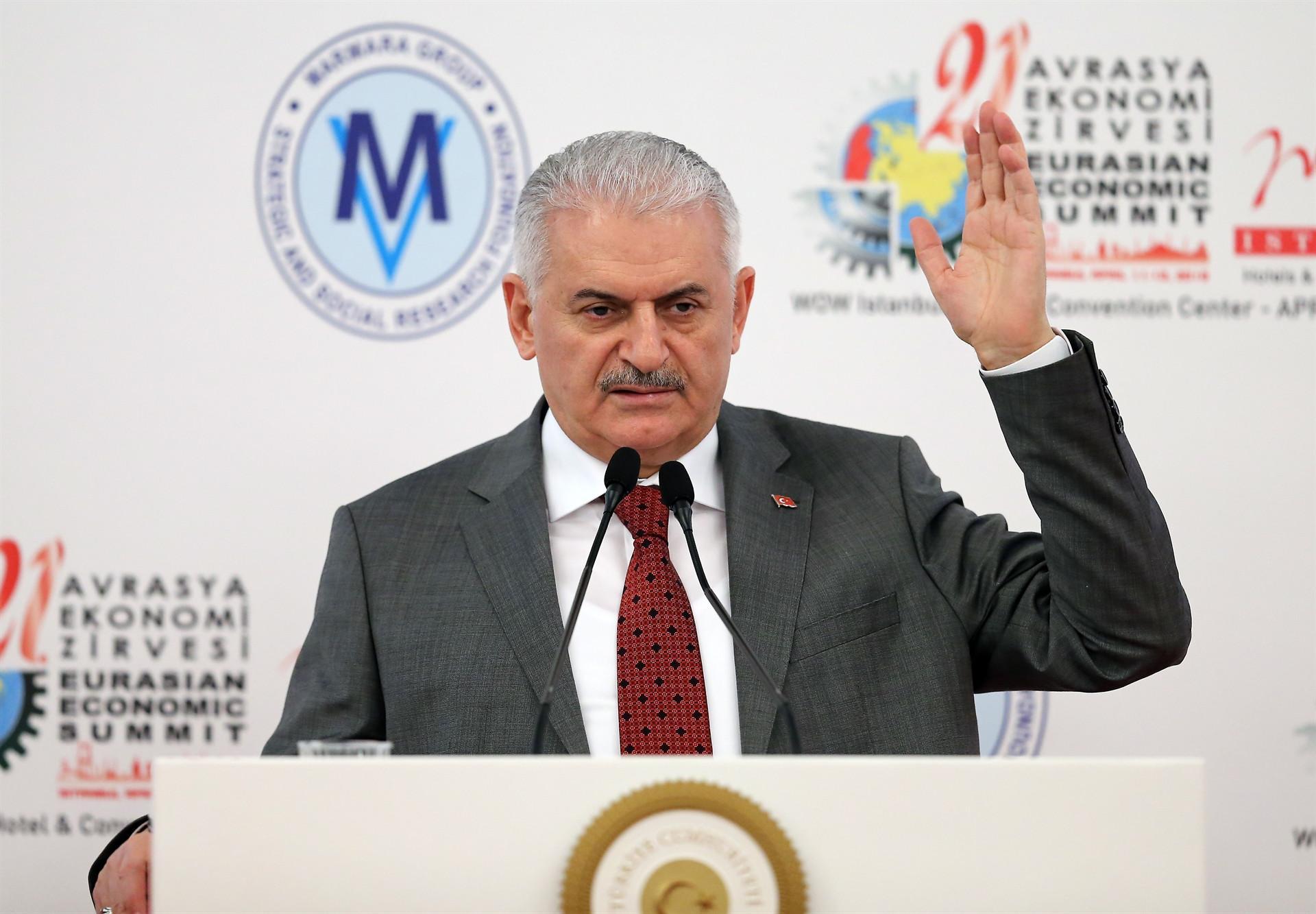
Global and regional uncertainties are the main reason behind steep fluctuations in market parities and the struggles of the Turkish Lira “do not comply with Turkey’s realities,” Turkish Prime Minister Binali Yıldırım has suggested.
Speaking at a summit in Istanbul on April 11, Yıldırım also said the Central Bank would take “necessary measures” to support the lira, without giving details.
“Our economy’s real indicators do not comply with what is happening. What we are facing are temporary fluctuations that will have limited impacts. We will take the required measures to raise our country’s predictability,” he added.
The prime minister also stressed that the Central Bank is “responsible for monetary policy,” seeking to emphasize the Bank’s independence.
“It has taken the necessary measures until now and it will continue to do so,” Yıldırım said.
Regarding Turkey’s persistently high inflation, he also said it was “the government’s duty to ease it.”
His comments came after the lira sank to record lows, battered by a number of structural concerns in investors’ minds, including a rising current account deficit. The lira, one of the worst-performing emerging market currencies this year, has also been pressured by a ruble sell-off and by the possibility of a U.S. missile strike on Syria.
The lira hit an all-time low of 4.1944 against the dollar, a depreciation of 9.4 percent this year. Against the euro, it fell to a record low of 5.1914. Following Yıldırım's comments, the lira eased to 4.1457 against the dollar and to 5.1327 against the euro.
President Recep Tayyip Erdoğan has characterized the sell-off as an attack by Turkey’s enemies
“There are games being played on our economy,” Erdoğan said in a speech in Ankara on April 11.
“I call on those attacking our economy: You will not succeed. Just like you failed before, you will fail again,” he added
Urging calm
In a televised interview on broadcaster BloombergHT earlier on April 11, Economy Minister Nihat Zeybekci urged “calm” to businesspeople.
“Turkey’s tourism revenue will see a 35 percent year-on-year increase this year. Our services exports are also slated to rise to $52 billion. Foreign direct investment [FDI] inflow to Turkey has been increasing. In the light of these facts, we can say that there is not any problem with foreign currency inflow to our country. The recent speculative moves do not reflect the realities in our economy,” Zeybekci said.
“We should not make any hasty intervention. The parity moves will stop at some point,” he added.
Regarding the government’s plans to combat inflation, Zeybekci said new measures would be taken to ease the food prices, especially meat prices.
“We are against methods that would tighten the demand. What we need to do is to raise the supply,” he added.
Zeybekci also said some contacts have been made with top U.S. trade representatives about steel and aluminum tariffs.
“We will hold face-to-face meetings with them in the near future. We have a firm hand in works to be exempted from the new tariffs. If the new tariffs continue to be imposed on Turkey’s iron and steel sector, we will think it is intentional and react accordingly,” he added.